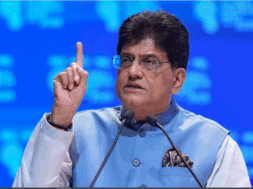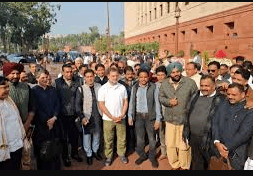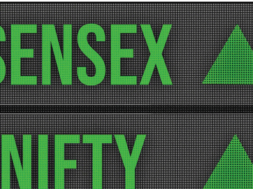
Prachi Vyas
The rise of social media has profoundly impacted various aspects of modern life, including how we perceive and express our identities. Platforms such as Facebook, Twitter, Instagram, and TikTok have become integral parts of our daily routines, providing spaces where we can present ourselves to the world, connect with others, and shape our personal and collective identities. This article explores the intricate relationship between social media and identity, examining how these platforms influence self-perception, social interactions, and cultural norms.
The Digital Self: Crafting Online Identities
Social media platforms offer users the tools to create and curate their online personas meticulously. Unlike face-to-face interactions, where identity expression is spontaneous and multifaceted, online identities can be selectively presented, edited, and enhanced. This digital self-construction involves choosing profile pictures, crafting bios, and sharing posts that reflect personal values, interests, and experiences.
The ability to control how one is perceived online can have both positive and negative implications. On the positive side, social media provides opportunities for self-expression and exploration, especially for individuals who may feel marginalized or constrained in their offline environments. For example, LGBTQ+ individuals can find supportive communities online where they can express their identities more freely. On the negative side, the pressure to present a polished, idealized version of oneself can lead to anxiety, low self-esteem, and a sense of inadequacy when comparing oneself to others.
The Role of Anonymity and Pseudonymity
Anonymity and pseudonymity are significant features of social media that can influence identity expression. Platforms like Reddit and certain forums allow users to interact without revealing their real identities. This can encourage more open and honest communication, as individuals may feel welcome to express their real thoughts and feelings without fear of judgment or repercussions.
However, anonymity can also lead to negative behaviours, such as cyberbullying, trolling, and the spread of misinformation. The lack of accountability associated with anonymous interactions can influence individuals to act in ways they might not be in their actual lives. Balancing the benefits of anonymity with the need to foster respectful and constructive online environments remains a challenge for social media platforms.
Social Validation and the Quest for Likes
Social media’s design often revolves around metrics of validation, such as likes, shares, comments, and followers. These metrics can significantly influence how individuals perceive their self-worth and social standing. The quest for likes and positive feedback can drive users to post content that aligns with popular trends and norms, sometimes at the expense of authenticity.
This pursuit of social validation can create a cycle of dependency, where individuals constantly seek external affirmation to feel valued and accepted. It can also contribute to the phenomenon of “compare and despair,” where users compare their lives to the seemingly perfect lives of others, leading to feelings of inadequacy and dissatisfaction.
Social Media and Cultural Identity
Social media platforms shape both individual and collective identities by influencing the spread of ideas and values within societies. Hashtags, viral challenges, and trending topics can unite people around shared interests, causes, and cultural phenomena. For instance, movements like #BlackLivesMatter and #MeToo have harnessed the power of social media to raise awareness, mobilize support, and drive social change.
In India, social media platforms mainly Twitter have been instrumental in political mobilization, cultural discourse, and social activism. Social media provides a space for diverse voices and perspectives, allowing marginalized communities to share their stories and advocate for their rights. It also facilitates the preservation and promotion of cultural heritage, as individuals and groups share traditional practices, languages, and art forms with a global audience.
The Impact on Youth and Identity Formation
Social media is a significant arena for identity exploration and formation for today’s genesis. Adolescents and young adults use these platforms to experiment with different aspects of their identities, seek peer validation, and establish their social networks. The influence of social media on youth identity can be both empowering and problematic.
On one hand, social media provides a space for young people to connect with like-minded individuals, access information and resources, and find support for their personal and social development. On the other hand, the pressures of social media can intensify mental health issues, such as anxiety, depression, and body image concerns. The constant exposure to curated images and lifestyles can create unrealistic expectations and contribute to a sense of inadequacy.
Navigating the Complexities of Social Media and Identity
As social media continues to evolve, so does its impact on identity. Navigating the complexities of social media and identity requires critical thinking and digital literacy. Users must know how social media shapes their perceptions, behaviours, and interactions. Here are some strategies for maintaining a healthy relationship with social media and preserving a sense of authentic identity:
- Mindful Consumption: Be conscious of your content and how it affects your mood, self-esteem, and perceptions. Follow accounts that inspire and uplift you, and limit exposure to content that triggers negative feelings.
- Authentic Expression: Strive to present a genuine version of yourself online, rather than succumbing to the pressure to adapt to unrealistic standards. Share your true interests, values, and experiences.
- Digital Detox: Take regular breaks from social media to reconnect with the offline world and reduce the impact of online validation metrics on your self-worth.
- Critical Awareness: Develop a critical understanding of how social media algorithms work and how they influence the content you see. Identify the role of social media in shaping public opinion and cultural norms.
- Support Systems: Use social media to build and maintain supportive networks. Engage with communities that share your interests and values, and seek out positive interactions.
Conclusion
Social media has transformed how we express and understand our identities. It offers unprecedented opportunities for self-expression, connection, and cultural exchange. However, it also presents challenges related to authenticity, social validation, and mental health. By navigating the complexities of social media with awareness and intention, we can harness its potential to enhance our identities and enrich our lives. As we continue to integrate these digital platforms into our daily routines, it is essential to maintain a balance that fosters genuine self-expression and positive social interactions.














